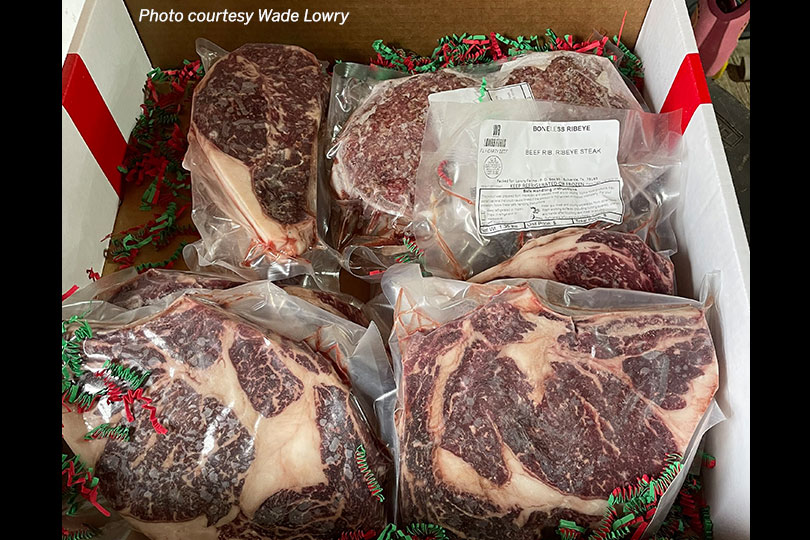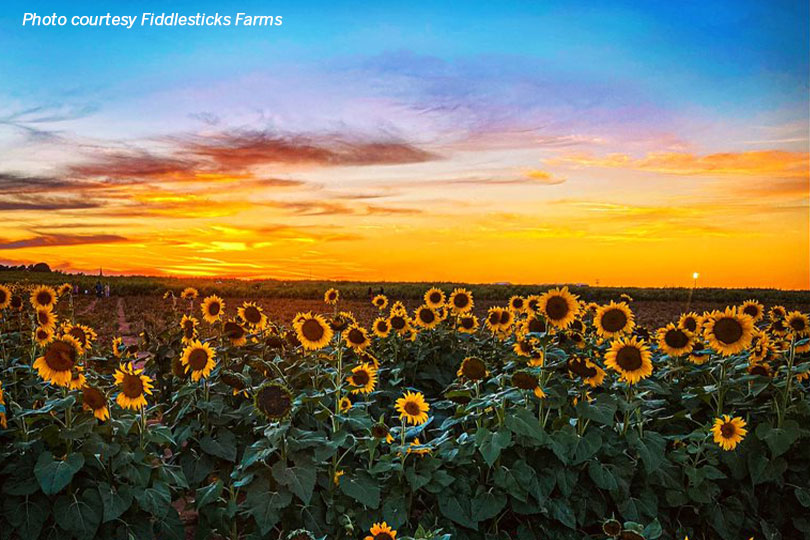By Jennifer Whitlock
Field Editor
In January 2020, reports of a mysterious deadly disease began making international headlines. By March, the virus we now know as COVID-19 had made its way to the United States, altering American lives forever.
Overnight, the global economy changed. Markets plunged. Consumers panic-stocked food and household goods, leaving grocery store aisles empty for weeks.
Agriculture wasn’t spared. Supply chain issues plagued farmers, and market prices were extremely volatile.
The boxed beef cutout value climbed sharply while the prices ranchers received for livestock fell just as quickly. Cattle feedlots were nearly overflowing as packing lines slowed to adjust to social distancing guidelines and absent workers.
Farmers felt the effects, too. Cotton, corn, soybeans, wheat, sugar and other commodity prices dropped steeply in 2020. Prices have since recovered, but the beginning of the pandemic was fraught with uncertainty.
Now, as the U.S. continues to move forward and operate under a “new normal,” farmers and ranchers keep farming and ranching.
Wade Lowry | W & R Farm and Ranch
In Bulverde, the past two years have been busy for fifth-generation rancher Wade Lowry. As the owner and operator of a direct-to-consumer beef business, W & R Farm and Ranch, Lowry has seen sales explode since March 2020, with no signs of slowing down.
“It’s been the best thing that’s ever happened to us. That run on food in the beginning really opened us up to a lot of consumers who already knew about us but just hadn’t ever purchased from us,” he said. “Now, we have a lot of new customers that have been really great to us.”
The family offers three different product lines to the public: grass-fed, “ranch raised” or grain-finished, and Akaushi beef. Because they were already well-established in the direct-to-consumer sector and have plenty of cattle grazing their South Texas ranch, it was fairly easy to ramp up production to meet increased need.
The U.S. Department of Agriculture-inspected custom meat processor the Lowrys use for all their cattle was ready, too.
“They were busy. We were busy. They were happy. We were happy,” he said. “It was really just lightning in a bottle, and we contained it. We were able to get it there in the right place at the right time.”
The unpredictable Texas weather cooperated, as well. It was a good, wet year yielding plenty of corn and forage.
There were a few growing pains along the way, though.
At first, Lowry sent some cattle to the processor at lighter weights and sooner than he’d like just to keep up with demand.
More beef also equals more storage. The Lowrys wanted to buy a commercial freezer made from a cargo container. But cargo containers are in high demand right now, and the manufacturer couldn’t source one.
The insulated boxes necessary to ship frozen beef, which are already expensive, are in short supply, as well.
So, the family pivoted to using online marketplaces like Facebook to find enough consumer-grade freezers to meet their needs. They also got creative by asking customers to upcycle boxes from meal delivery kit services.
For every insulated shipping box the Lowrys receive from a customer, they offer a purchase discount or free product.

The Lowrys’ direct-to-consumer beef business expanded during the pandemic.
Overall, his operation and various businesses thrived during this difficult time.
“COVID was the best thing that ever happened, financially, to us. Not only did our beef business grow, we had skid steers and dozers and excavators ready to clear land. People were buying land, so that business is going well, too,” Lowry said. “So, we just stayed busy, and it’s been really nice.”
Matt Norton | Fiddlestick Farms
Agritourism venues like Fiddlestick Farms in Midland had to make changes to adapt to COVID-19 protocols.
“Things we did in 2019 don’t work anymore. Something as simple as how we put out condiments and handle sanitation where the general public sits has had to change to make sure people are safe and feel safe now,” said Matt Norton, who owns Fiddlesticks Farms with his wife Jessica.
Because Fiddlestick Farms is an outdoor venue, the pandemic did not hurt their business as badly as others. The eight-acre corn maze, 15-acre pumpkin patch and five-acre sunflower field offer plenty of opportunities to spread out and maintain social distance. So, even in the first fall season, customers showed up in droves for a family outing.

Sunflower fields, pumpkin patches, corn mazes and other attractions allow visitors to make memories and also learn about agriculture.
He still faces several challenges, though. He now has to “overstaff” by hiring three times as many people in case multiple employees are sick or exposed to COVID-19.
“I’ve had to hire 150 people to ensure 30 people showed up for a shift,” Norton said. “Now, I need a full-time sanitation crew to go around cleaning picnic tables and all the other surfaces people touch frequently. We actually had to remove some attractions to justify paying the sanitation crew, because those are employees we otherwise would’ve utilized to staff those attractions.”
A nationwide cash and coin shortage made business difficult, too. A long stretch of time in which quarters were in very short supply had Norton’s employees offering half-dollar coins as change, earning some double takes from puzzled customers.
To sidestep the issue, he offered incentives for online ticket purchases like a separate entry bypassing crowds.
Other frustrations followed this year when supply chains began to break down.
Paper goods were difficult to source this season, leading Norton to make repeated small purchases at local grocery stores. It’s much more cost-effective to order in bulk for the seven separate kitchens he operates during the season, but when wholesalers couldn’t get him what he needed when he needed it, he had no choice but to pay more.
Norton faced another issue when he attempted to make a routine bulk purchase of apples this fall.
“We have a relationship with a Michigan farmer who grows apples. We purchase his No. 2-grade apples to shoot in our apple cannons, which is a very popular attraction here,” Norton said. “But since there was a nationwide apple shortage this year, the trucking industry went up on freight rates because that commodity was in high demand. So, we had to really get creative on how we ordered products, how we got them here and how we kept them stocked to meet our need without spending an arm and a leg to do it.”
Preparing for the farm’s busy season had its own set of challenges.
Even though his venue is for agritourism, he shares the struggles of a conventional crop farmer when it comes to inputs.
“Even though we’re a different kind of farm, we still feel the effects the same way,” he said.
It’s harder to keep equipment running, too.
Parts for machinery and farm equipment that are normally readily available take several days to arrive—if they can even be found.
He’s concerned about what 2022 will bring as inflation continues to rise. Everyday necessities like food and fuel are costing more while wages remain flat, leading to less disposable income for extras like family outings.
But all he can do is continue to farm and hope.
He’s adjusted Fiddlestick Farms the past couple of years as necessary to stay open and create as safe of an environment as possible for their customers.
And that’s what he will continue to do.
“What didn’t change for us is our core values and our mission. Every year, our goal is for families to come out and make memories,” Norton said. “Even though we had to operate differently, that’s one thing we still worked hard for, and that’s what we’ll keep doing as long as we can.”

